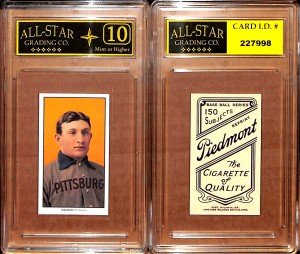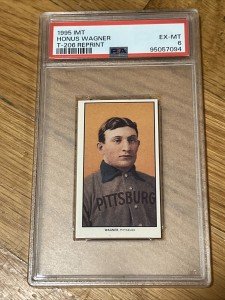Honus Wagner is one of the most revered figures in baseball history. Known as "The Flying Dutchman," he played primarily for the Pittsburgh Pirates and is celebrated for his incredible skills on the field. Wagner wasn't just a standout player; he revolutionized the shortstop position, showcasing a blend of speed, agility, and powerful hitting that set a new standard for future generations.
Wagner's impact wasn’t limited to his athleticism. He was also a beloved personality and a role model. Fans admired his passion for the game, and players respected his talent. His tenure in the early 1900s helped popularize baseball during a time when the sport was still finding its identity in America. Wagner embraced the spotlight, contributing to the game's growth and helping it gain a loyal following.
On the field, Honus Wagner was a force to be reckoned with. He led the National League in batting average eight times and was known for his exceptional base running and defensive skills. His statistics from his 21-year career are impressive, making him one of the top players of his time. He was inducted into the Baseball Hall of Fame in 1936, solidifying his legacy as one of the all-time greats.
Off the field, Honus Wagner's influence continues to be felt. His baseball card, considered one of the rarest and most valuable in existence, adds to his legendary status. Collectors and fans alike recognize Wagner not just as a player, but as an enduring symbol of baseball history. His life and career serve as an inspiration for players and fans, reminding us of the love and dedication it takes to succeed in sports.
The Legend Behind the Baseball Card
When you hear the name Honus Wagner, many things might come to mind: legendary baseball player, Pittsburgh Pirate icon, and of course, the baseball card. But the story behind the famous Honus Wagner card is as captivating as Wagner's own career. It’s not just any card; it’s one of the most sought-after collectibles in the world.
Produced in the early 1900s, the Honus Wagner card was part of a tobacco company’s promotion, designed to attract buyers. But what makes this card special isn’t merely its age; it’s the mystique surrounding Wagner himself. Known for his incredible talent on the field, he was not only a great hitter but also an exceptional shortstop. His combination of skills made him a player that fans adored and feared on the diamond.
But why did Wagner choose to stop the production of his card? Legend has it that he was uncomfortable with the idea of promoting tobacco to children and didn’t want his image associated with it. That move created an aura of rarity and desire around the card, leading it to become a major player in the world of sports memorabilia.
Today, the Honus Wagner card is often viewed as the Holy Grail of baseball cards. Even in its condition, the few that exist are valued in the millions. Collectors are constantly on the hunt for this elusive treasure, and each sale only adds more layers to the story of Wagner and his lasting impact in baseball. It's not just about a piece of cardboard; it's about honoring a baseball legend who left his mark on the game and fans everywhere.
Wagner’s Playing Style and Skills
Honus Wagner wasn't just a great baseball player; he was a game-changer. His playing style was a mix of speed, agility, and raw talent that left fans and players in awe. When he stepped onto the field, you could see his passion for the game. He wasn't just running the bases; he was a whirlwind with a purpose, making every inch count.
One of Wagner's standout skills was his exceptional batting. He had a keen eye for the ball and could hit for both average and power. It wasn't unusual for him to rack up hits in the game, making him a consistent threat at the plate. His swing was powerful yet controlled, allowing him to drive the ball to all fields. Plus, he had a knack for getting on base, which was key for his team’s scoring opportunities.
In addition to his batting prowess, Honus Wagner was known for his defensive skills. Playing shortstop, he covered a lot of ground and made difficult plays look easy. His quick reflexes and strong arm helped him make critical outs and kept opposing teams on their toes. He wasn’t just playing the game; he was redefining what it meant to be an effective defensive player.
Wagner's base running was just as impressive. He had an incredible combination of speed and smart decision-making. When he got on base, pitchers dreaded the thought of him stealing. Everyone knew that once he took off, he was a force to be reckoned with. His daring approach on the bases contributed significantly to his overall impact on the game.
Stories of Wagner’s Greatest Moments
When talking about baseball legends, Honus Wagner always finds his way into the conversation. One of his greatest moments came in 1909 when he led the Pittsburgh Pirates to a World Series victory. It was a thrilling matchup against the Detroit Tigers, and Wagner’s powerful presence on the field was undeniable. He played shortstop with an agility that left fans in awe, showcasing why he was known as “The Flying Dutchman.”
Another highlight of Honus Wagner's career was his legendary performance during the 1911 season. That year, he hit for an impressive .334 batting average, solidifying his status as one of the top hitters of his time. His ability to read pitchers and make contact with the ball made him a formidable opponent. Fans would flock to the ballpark to see Wagner in action, as he consistently delivered incredible plays and nail-biting moments.
Wagner's impact wasn't just limited to hitting and fielding. His leadership was evident in the clubhouse, where he inspired many younger players. Stories of his mentoring approach have inspired generations of baseball athletes. They looked up to Honus Wagner not just for his talent, but also for his sportsmanship and dedication to the game.
No mention of Honus Wagner would be complete without touching on his iconic baseball card, which has become a symbol of sports collectibles. The T206 Wagner card is often called the “Holy Grail” of baseball cards, fetching prices that are jaw-dropping. Collectors admire it not just for its rarity but for the connection it represents to Wagner's unforgettable contributions to baseball history.




